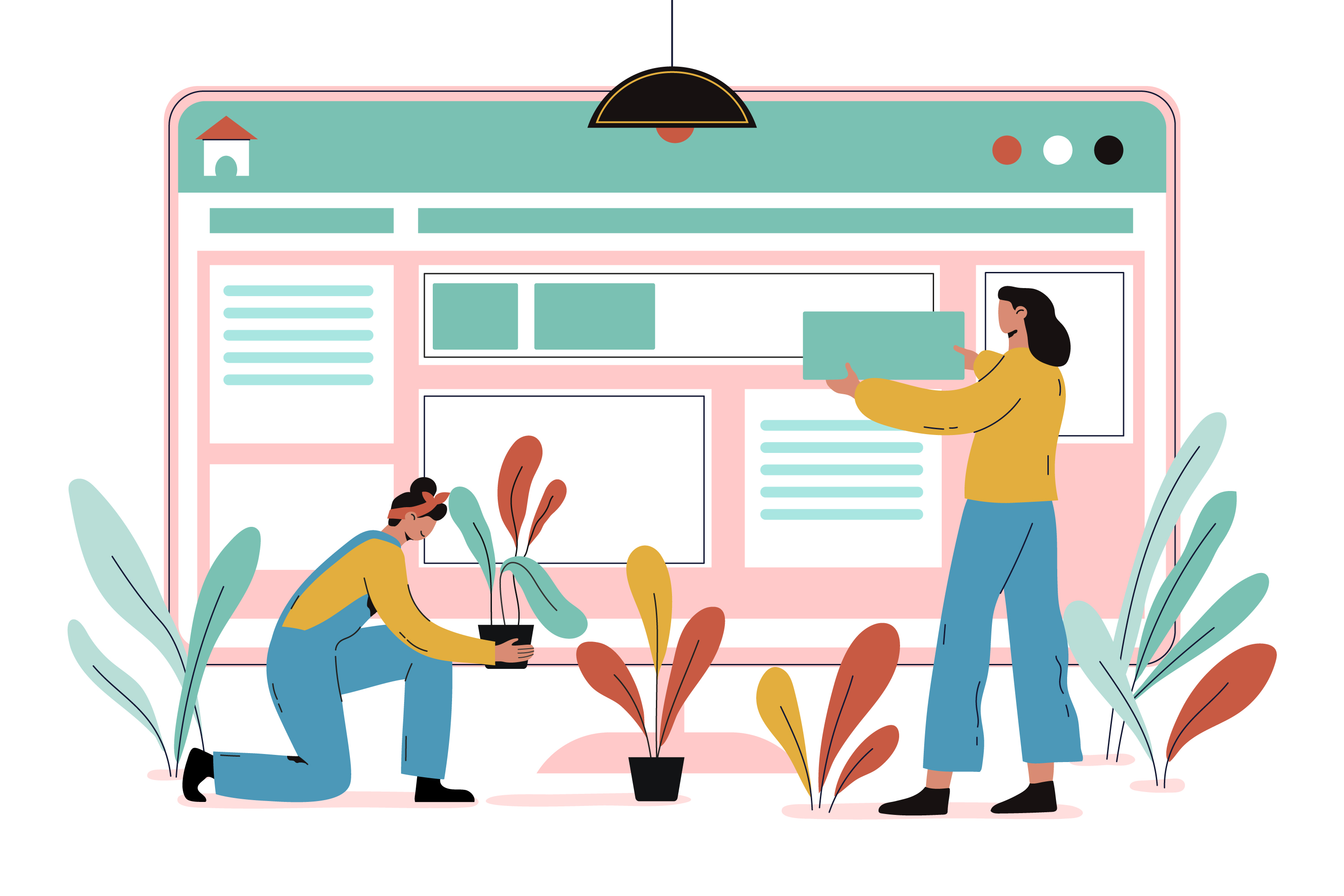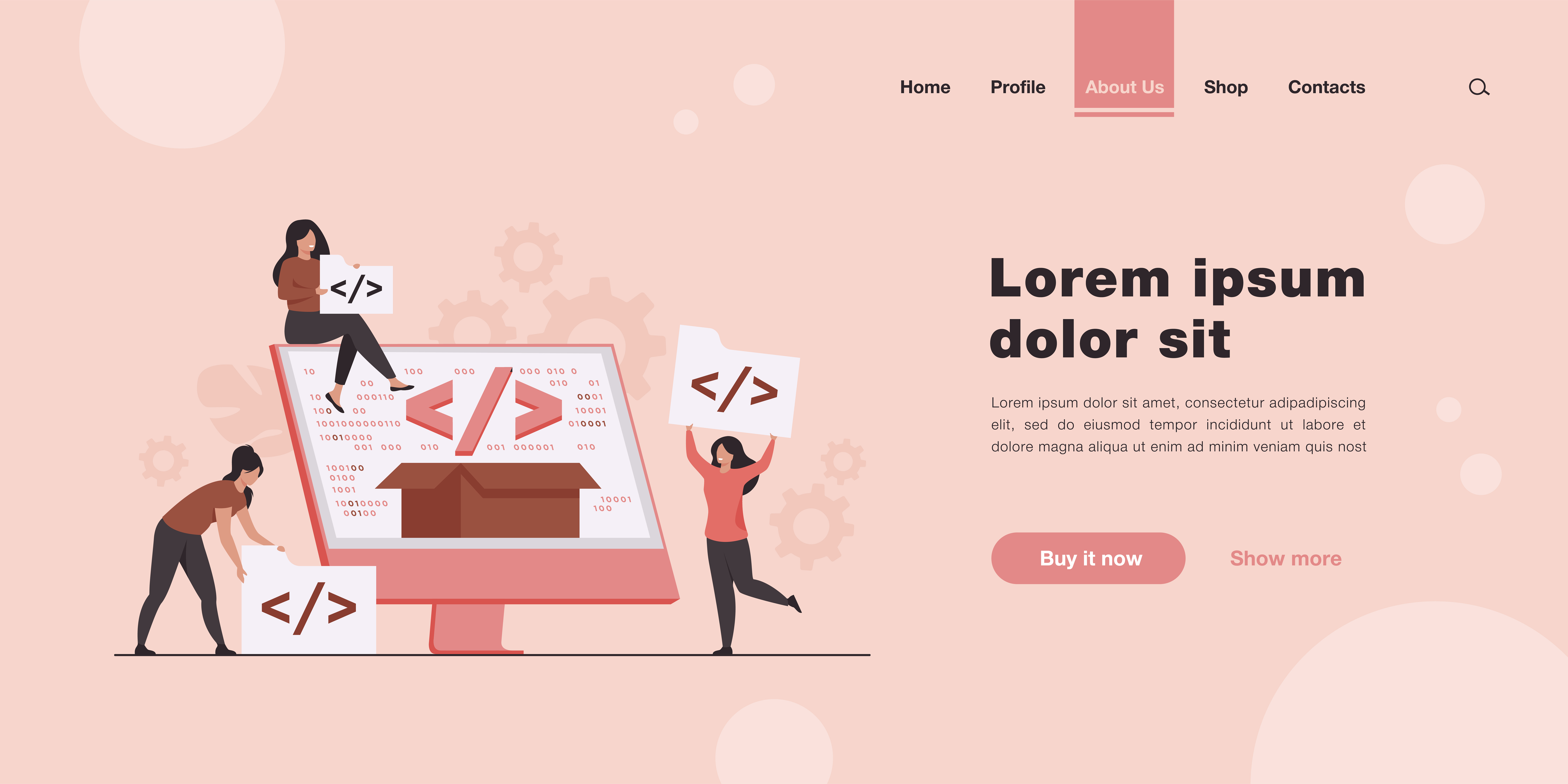Why should you create a business website in 2025? It’s simple. A website is like a digital face. It shows your products, services, and what makes your brand unique. By building a website for a business, you make it easier for customers to find and connect with you. Planning to start a business website is one of the smartest ways to grow your reach and gain credibility. A website for a business also helps you stay open 24/7, providing information or accepting sales even when you're sleeping. Creating a website is a step your business can’t skip!

What Does It Cost to Create a Business Website in 2025?
Creating a business website involves several costs that depend on the size and complexity of your project. When planning your website, you’ll need to consider a variety of factors, including design, hosting, domain name, and ongoing maintenance. These elements determine the overall company website cost.
The Breakdown of Costs
When creating your website, there are a few essential expenses to take into account first:
- Domain Name: Your domain name is like your website’s address. It’s how people find you online, and it’s usually pretty affordable, costing between $10 and $20 a year.
- Hosting: Hosting is the service that keeps your website up and running on the internet. Prices for hosting can vary a lot depending on what you need. You might spend about $5 a month on the lower end, but it might reach $50 if you require more sophisticated features or higher traffic support.
- Website Design: If you’re using a simple template or a website builder, you can expect web design costs to start around $100. However, depending on how complicated your needs are, the price range for a custom design created especially for your business might be anywhere from $3,000 to $10,000.
These factors will shape your website’s appearance and functionality. They will also influence the overall cost. Careful planning helps in striking a balance between cost and quality.
Factors That Affect the Cost of Building a Website
The features you want will determine how much a website will cost to build. A basic website with a contact form, an About page, and a Homepage is far less expensive than a more difficult one with booking or e-commerce features. Custom features like chatbots, animations, and interactive elements will also raise the price.
Many businesses save money by using website builders like WordPress, Wix, or Squarespace. These platforms are easy to use and offer ready-made templates, but if you need advanced features, you might have to pay extra. For example, running an online store could require a payment processor, which can cost anywhere from $30 to $50 per month.
If you decide to hire a professional, that will also impact the average website cost. Working with a web designer or developer can help you create a polished, unique look for your site, but it’s a bigger investment. Choosing the right website development services ensures your website matches your brand, which is key to attracting customers.
Ongoing Expenses and Maintenance
Making a website is just the beginning. To keep it functioning properly, you must perform regular maintenance. Hosting might cost anywhere from $60 to $600 a year. The fee remains between $10 and $20, and the domain name needs to be renewed annually.
Subscriptions for software or plugins are additional costs. For example, there can be additional costs for adding email marketing integrations, SEO tools, or improved security features. These technologies help improve functionality and protect your website against attacks.
If you prefer to outsource updates and fixes, maintenance services from professionals can cost a few hundred dollars per year. This includes things like updating content, resolving technical issues, or improving your website’s design over time.
Planning Your Budget
Building a website for a small business usually costs between $500 and $5,000. From basic websites to ones with unique designs and additional features, this covers it all. If you want a more sophisticated style with more complex alternatives, the average website cost will be between $3,000 and $10,000.
A website builder is a far more affordable option if you're on a tighter budget. For those who are just starting out, several of these tools offer free or inexpensive options. But investing a little extra in unique design might pay off handsomely if you want a powerful, polished web presence.
Keep in mind that a well-designed website is an investment in the future of your company, not merely an expense. You can choose options that satisfy your demands and your budget by being aware of the various expenses involved.

A Simple Guide to Building Your Company Website: From Concept to Launch
Starting a website for your business is an exciting step in growing your brand and reaching more customers. Admiral Studios' business website guide will help you at every stage, whether you're just getting started or want to improve your internet visibility.
1. Understand Your Audience and Set Clear Goals
Before you start making a business website, it’s important to know who you’re building it for and what you want it to achieve. This means identifying your target market—the people you want to visit your site. Think about their age, interests, location, and what they might be looking for when they visit your site. Are they looking for products to buy, services to book, or just information about your business?
Set specific objectives for your website as well. Do you want to collect leads, generate sales, or just make it easier for people to get in touch with you? Having a clear understanding of your objectives will help you concentrate and create a website that benefits your company.
2. Pick the Perfect Domain Name
Selecting a domain name is the next stage in launching a company website after you have a clear idea of who you are opening a website for business for and your goals. People will use your domain name (such as www.yourbusinessname.com) to find your website.
A good domain name will help with branding and make it easy for potential customers to find you online. If possible, try to keep it short and sweet, and avoid using complicated words or numbers.
3. Choose the Right Website Builder
Choosing a website builder is the next step. Without knowing how to code, creating a website is simple with a website builder. Simple templates are available on platforms like Squarespace, Wix, and WordPress, which you may modify to fit your needs.
When picking a website builder, think about a few things:
- Is it easy to use?
- Does it have the features you need, like an online store or booking system?
- Will it allow you to add more features as your business grows?
Choose the one that is most easy to use and best meets your company's demands. Consider something that is simple now but flexible enough to evolve as you do.

4. Start Building Your Website
It's time to begin building your website business after selecting a builder. Start by picking a template that represents your company's style and looks professional. Regardless of whether you are operating a service-based business, blog, or online store, website builders often provide a variety of themes.
As you build, maintain a simple and user-friendly layout. Make sure users aren't overloaded with information and will easily find what they're looking for. To keep the website looking open and user-friendly, make use of clear headlines, simple menus, and lots of white space.
5. Add Engaging Content to Your Site
Content is the heart of any basic business website. It’s what visitors come for, so make sure it clearly explains who you are and what you do. This includes pages like:
- Home Page: A welcoming introduction to your business.
- About Page: Information about your story, mission, and values.
- Products/Services: A clear overview of what you offer.
- Contact Page: Ways for visitors to reach you.
When writing your content, be concise and speak directly to your target market. Use language that connects with them and makes them feel confident in what you offer. Always keep our business website guide in mind and remember that each piece of content should serve a purpose, whether it’s helping customers find what they need or encouraging them to take action.
6. Set Up Your Marketing Tools
A website serves as a marketing tool in addition to being a venue for showcasing your company. You must use marketing techniques that facilitate communication with visitors if you want to get the most out of your website. This can involve items such as:
- Email sign-ups: Collect emails from visitors so you can stay in touch and send them updates, discounts, or promotions.
- Social media links: Add links to your social media profiles so visitors can follow you and engage with your brand.
- Online reviews: Show reviews and testimonials to build trust with potential customers.
With these marketing strategies, you may turn your website into a tool that helps you achieve your business objectives while also drawing in visitors.

7. Make Sure Your Site Works on Mobile
Since many people access websites these days via smartphones or tablets, it's critical to ensure that your website functions properly on mobile devices. Your website will be great on any screen size—desktop, tablet, or smartphone—if it has a responsive design.
When designing your website for business, double-check that the mobile version is easy to use. Make sure the text is easy to read, the images load quickly, and the buttons are big enough to tap without any trouble. This will keep visitors happy and engaged, no matter how they’re browsing.
8. Link Your Pages and Connect with Others
Don't forget to include both internal and external links when you're developing your website. Internal links encourage users to explore more of your website by directing them to other pages. Conversely, external links direct readers to trustworthy websites or other sources, which can enhance the legitimacy and value of your writing,
Internal links keep visitors engaged by helping them find more of what they’re looking for, which can lead to them staying on your site longer. External links show your connections to other trustworthy companies or resources. In addition to improving user experience, both kinds of links can raise your website's search engine rating.
9. Improve Your Site’s Visibility on Search Engines
Search engine optimization (SEO) is the process of making your website more visible to search engines like Google. The better your SEO, the more likely people are to find your site when they search for things related to your business. To improve SEO on your site:
- Use keywords related to your business in titles, headings, and content.
- Add descriptive alt text to images so search engines know what they’re about.
- Write content that answers common questions in your industry.
Your website will have a better chance of ranking higher in search results if you follow these SEO steps to start a website, which may result in more visitors.
10. Launch, Monitor, and Improve Your Site
Once you’ve set everything up, it’s time to launch your website! But the work doesn’t stop there. Setting up a website for business is just the beginning. After launching, keep track of how your site is performing by monitoring things like:
- How many visitors you’re getting.
- How long visitors stay on your site.
- Which pages they visit the most.
Use tools like Google Analytics to see where your traffic is coming from and how people are interacting with your site. This information can help you make improvements over time and keep your site fresh and up-to-date.
Although creating a company website from concept to launch may seem like a huge task, it becomes a lot easier if you divide it up into smaller tasks. Every step is crucial to building an online presence that not only draws clients but also helps in the growth of your company, from establishing specific objectives to guaranteeing your website appears in search results. You'll have a website that works for you if you take things one step at a time.
Contents
1. What Does It Cost to Create a Business Website in 2025?
2. A Simple Guide to Building Your Company Website: From Concept to Launch
3. - Understand Your Audience and Set Clear Goals
4. - Pick the Perfect Domain Name
5. - Choose the Right Website Builder
6. - Start Building Your Website
7. - Add Engaging Content to Your Site
8. - Set Up Your Marketing Tools
9. - Make Sure Your Site Works on Mobile
10. - Link Your Pages and Connect with Others
11. - Improve Your Site’s Visibility on Search Engines
12. - Launch, Monitor, and Improve Your Site
Back to the top
The answers to your questions
What is a Business Website?
A business website is an online space that represents your company. It shares information about what you do, your products or services, and how people can contact you. It’s like a digital storefront that’s always open, helping potential customers learn more about your business at any time.
Do I Need a Website for My Business?
Yes, a lot of firms nowadays find that having a website is crucial. It increases internet visibility, promotes trust, and shows your value. A website may draw in new clients and make it simple for them to get in touch with you, even if your company is small. Consider it an essential resource for growing and promoting your brand.
How to Make a Free Website for My Business?
You can use free website builders like Wix, WordPress, or Weebly to create your website. These platforms offer templates that are easy to customize, so you don’t need any special skills. Keep in mind, though, that free options might have limited features or ads on your site. Upgrading to a paid plan gives you more tools and a professional look.
How to Design a Website for a Business?
Designing a business website starts with knowing what you need. Choose a clean layout that matches your brand. Include important sections like a homepage, about page, and contact details. Use high-quality images and write clear, simple text to explain what you offer. If you’re not sure where to begin, you can start with a template or hire a designer for a more professional look.
